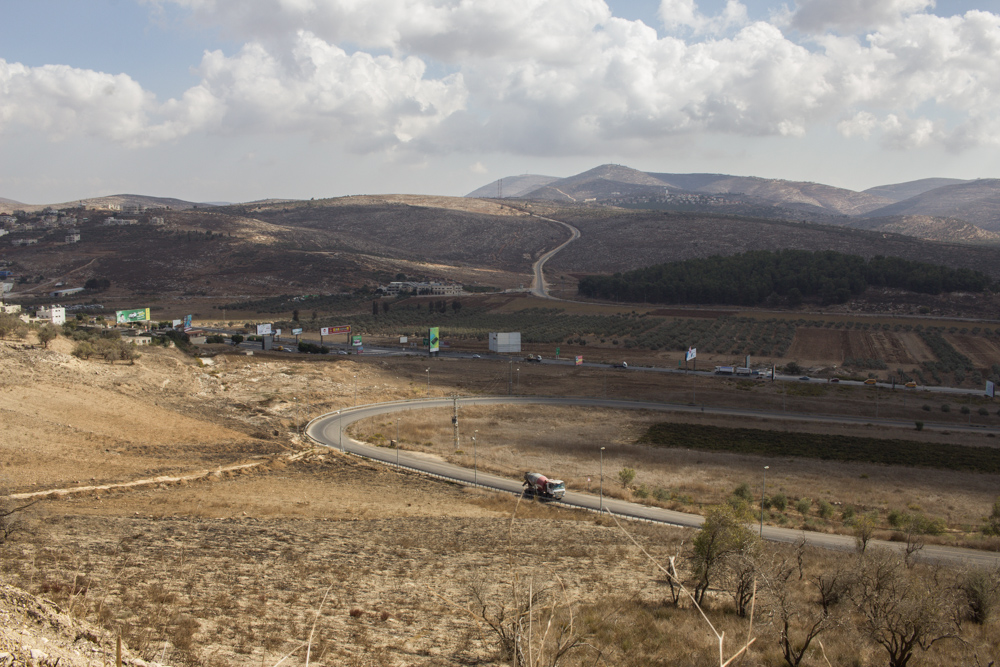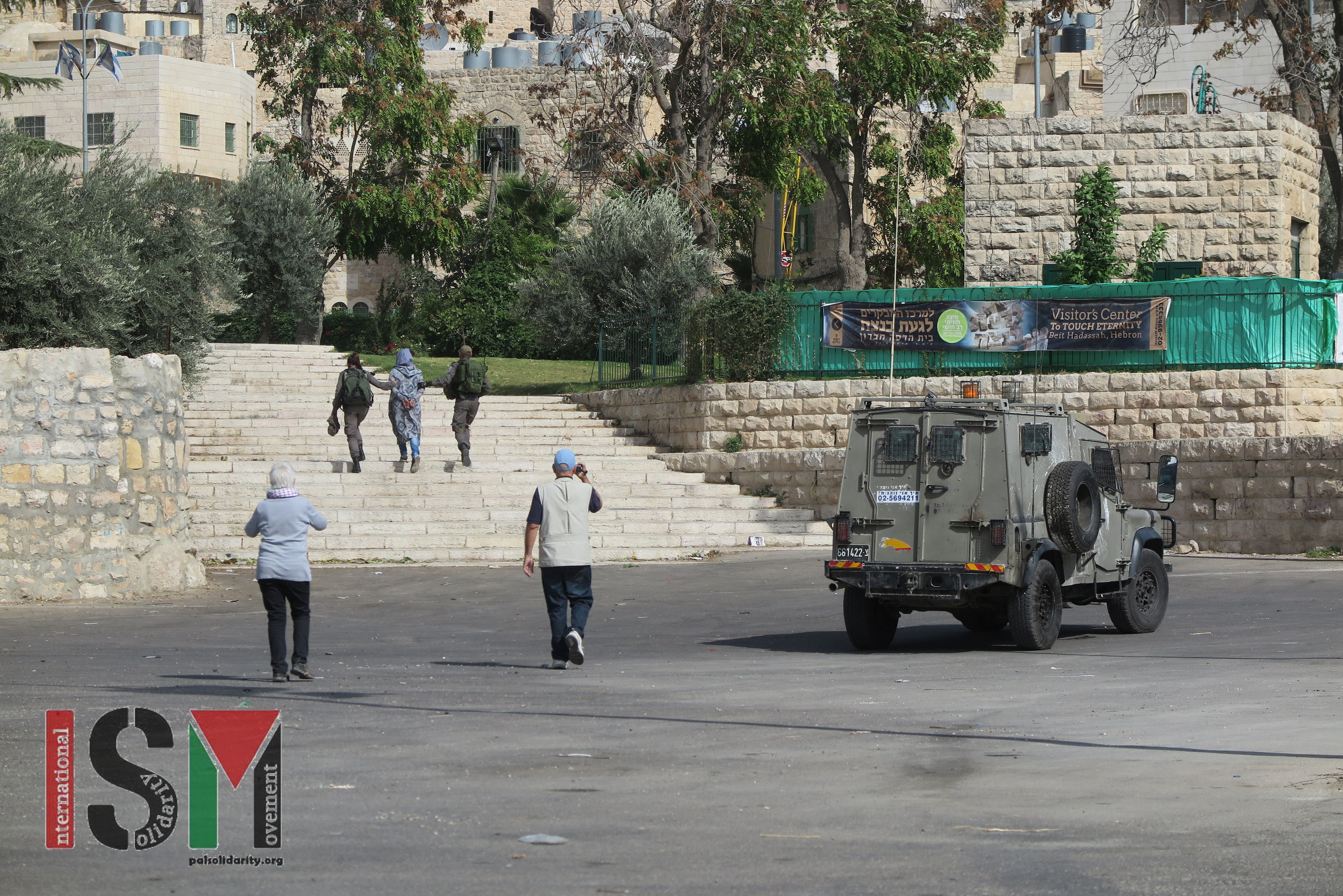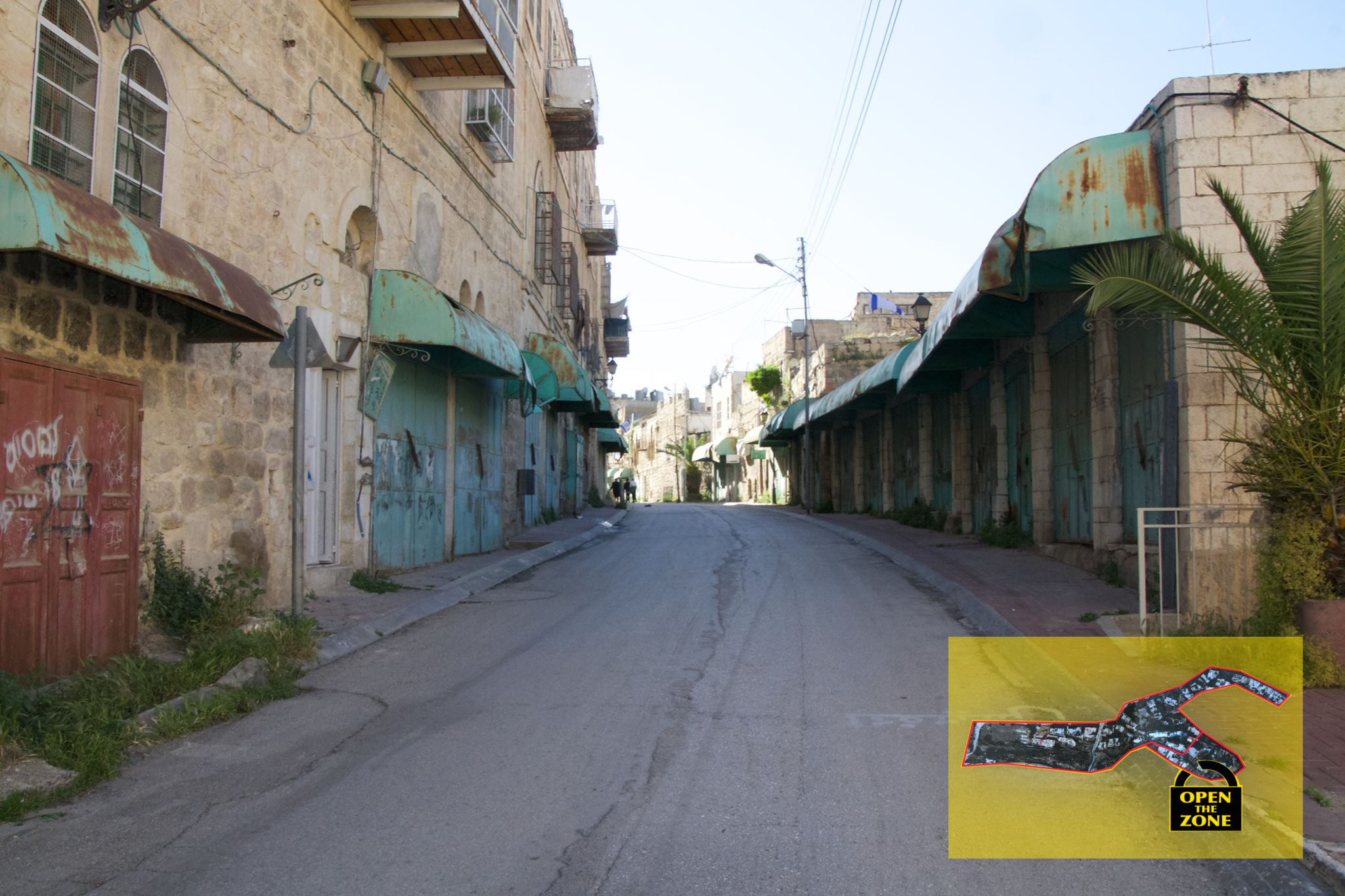Tag: International law
-

Olive harvest in Kafr Qalil and protective presence
2nd November 2016 | International Solidarity Movement, Huwwara team | Kafr Qalil, occupied Palestine On 31st October international activists joined a Palestinian farmer and his family in Kafr Qalil to pick their olives. There was no interruption during the harvest this day, but there was a strong sense of pressure that is always present for…
-

Palestinian woman arrested in Al-Khalil accused of carrying a knife
2nd November 2016 | International Solidarity Movement, al-Khalil team | Hebron, occupied Palestine A Palestinian female was arrested on the 1st of November near Qeitun checkpoint accused of carrying a knife. Eyewitnesses described her being ordered to kneel on the ground, open her dress and loosen her hijab in public, before being handcuffed and escorted…
-

Imprisoned life: the feeling of a ‘closed military zone’
30th October 2016 | International Solidarity Movement, al-Khalil team | Hebron, occupied Palestine ‘Closed military zone’ – a sterile term for an act of deliberate apartheid policies and dehumanisation with the clear and deliberate target of forcibly displacing Palestinian civilians: women, children, elderly, anyone that is Palestinian, from the Tel Rumeida and Shuhada Street neighborhood…
